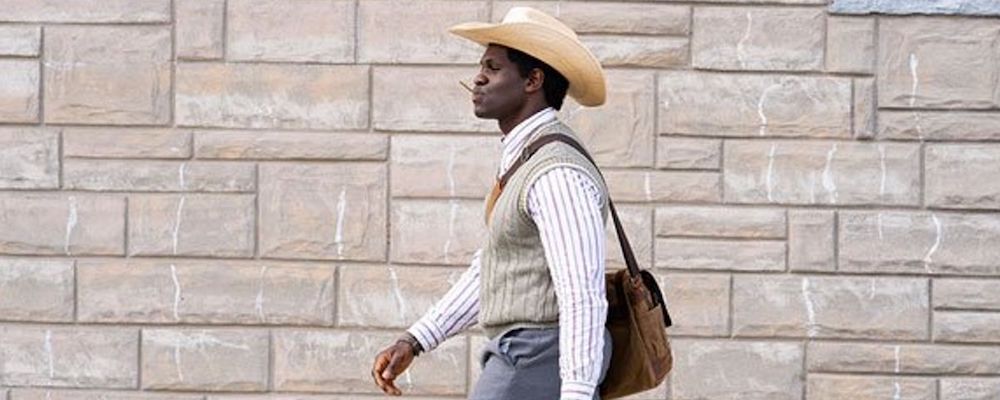Apple TV’s ‘Little America’ Celebrates the Rich Patchwork of Cultures That Make up Our Country
Alci Rengifo
Apple TV’s “Little America” is here to remind us that our country is made up of various patchworks put together from other countries, languages and personal histories. It functions as a true panorama of the United States from the point of view of its diversity. No other recent show has framed the immigrant experience in this way. It’s an anthology where every episode tells a different story, in a different era, and is directed by a filmmaker from the corresponding culture.
The stories in this first season of “Little America” cross decades and nationalities. We meet Kabir (Eshan Inamdar), whose Indian parents find themselves being deported, leaving him alone with a shady relative to run the Utah motel his father managed. Marisol (Jearnest Corchado), an undocumented Mexican high schooler, expresses her frustrations by acting out but finds a love for squash that could open wider doors. But there are also stories of those just arrived, who begin to take on new identities while preserving their heritage. That’s the case with Iwegbuna (Conphidance), a student from Nigeria eager to impress but soon feels like an outsider until he discovers the joys of cowboy wear.
Showrunners Kumail Nanjiani and Lee Eisenberg, who have left their stamp with shows like “Master of None” and “The Office,” have produced something special with “Little America.” In a sense it’s one of the new year’s most political shows without being explicitly so. In these times when the subject of immigration and nationalism burns so dangerously, here is an anthology that celebrates the joy and even sorrows of being part of the American melting pot. Kabir as a small boy falls in love with words and becomes a spelling bee champ, even after his parents are forced to return to India. Left behind he makes it to a major tournament where he meets then-First Lady Laura Bush (Sherilyn Fenn of “Twin Peaks” fame), who offers hollow platitudes when he asks for his parents to be allowed back into the country. At times the writing even breaks down the stereotype of minorities only facing cruel treatment from whites, as Marisol’s family live in a garage where the Middle Eastern landlord absurdly restricts the use of a refrigerator.
That is one of the great beauties of this show, the way it demolishes set pop cultural perceptions in the media of various cultures. Instead of the usual clichés about drug dealers, the Latinas play squash, a French woman (Mélanie Laurent) wanders around a spiritual retreat. In one of the season’s most powerful stories, a Syrian cook (Haaz Sleiman) faces his own family’s prejudices for being gay. Forget the “Shahs of the Sunset Strip,” in “Little America” the Persian episode is about a parking attendant (Shaun Toub) who goes to desperate lengths just to keep his son from moving out of the house. Great international directors like India’s Deepa Mehta and Nima Nourizadeh from Iran give the episodes the sensibilities and care they deserve. What makes their efforts even more important is how every episode in a sense connects through the human theme that we all endure loss, love and hope. Other stories are included about people from China and Uganda. In the Ugandan story a woman faces the criticisms of her family for being divorced, and in the Chinese tale a telemarketer tries to go on vacation with kids who feel more and more distant. As viewers we get insights into the cultural diversity of our neighbors, while realizing we’re all ever so human in our prejudices and insecurities. Iwegbuna from Nigeria feels the uncertainty of a family living back in a homeland ravaged by civil war, while in the U.S. he himself is simply fighting to become a teacher’s assistant. When Marisol discovers squash she learns how honing a skill blurs lines of even class divisions, and the white Americans at the dinner parties need to take her seriously now.
Even more striking is that all of these stories have been inspired by actual people, and every episode ends with a real photo and an update. “Little America” is a relevant and essential show, it unites us instead of sowing division, it thinks in continents instead of in borders. This is an anthology that celebrates the notion that we all live under the same flag and breathe the same air. Finally, here’s some television that is also simply good for you.
“Little America” season one begins streaming Jan. 17 on Apple TV Plus.

